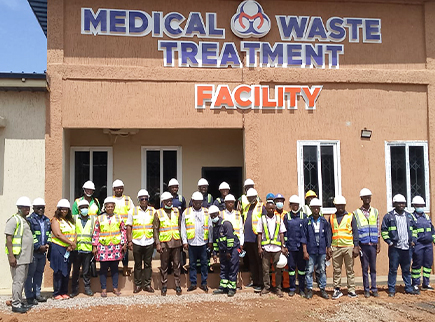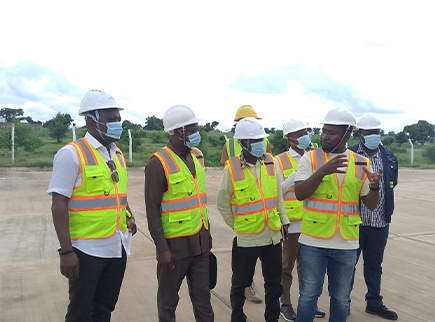Mr. John Oti Bless, Chairman, Parliamentary Select Committee on Sanitation and Water Resources, has called for the establishment of a dedicated source of funding to tackle the country’s waste management challenges and improve environmental sustainability.
He said sanitation was a daily issue that required consistent investments, emphasising that the country must follow the example of other countries by introducing a permanent source of funding for the sector.
Mr. Bless made the call when Members of the Committee toured sanitation facilities operated by the Jospong Group in Tamale.
The facilities included the Medical Waste Treatment Facility, the Tamale Water Treatment Plant, the Integrated Recycling and Compost Plant Limited (IRECOP), and the Waste Landfill site at Gbalahi in the Sagnarigu Municipality.

The tour formed part of the Committee’s nationwide engagement with Metropolitan, Municipal and District Assemblies (MMDAs) and private sector players in waste management to develop strategies to improve sanitation and hygiene across the country.
Mr. Bless said: “We should have a dedicated tax component either on fuel or any of our commodities, committed to fight sanitation and waste management.”
He was concerned that successive governments had not done enough to improve the sanitation situation, saying this underscored President John Mahama’s decision to measure MMDAs performance against sanitation and environmental standards.
He said as a country, too much responsibility for waste management had been left to the private sector, emphasising that government must demonstrate stronger commitment if environmental sustainability efforts were to succeed.
He lauded the Jospong Group for its investment in the sanitation sector and gave an assurance of government’s willingness to partner the company to promote sustainable waste management.
Mr. Bless said: “Even though we still have serious sanitation issues, I wonder what would have been the state of our country without the intervention of the private sector.”
Mr. Nashiru Kamil, Operations Manager at IRECOP, outlined operational challenges of the IRECOP, including the high capital expenditure required for equipment and infrastructure, rising operational costs such as fuel, electricity and labour, and difficulties in transporting waste from remote areas to the plant.
He called for attitudinal change and improved public behaviour towards waste management to complement institutional efforts in keeping the environment clean.
Members of the Committee later engaged the authorities of the Tamale Metropolitan Assembly and the Sagnarigu Municipal Assembly on management of sanitation within their jurisdictions.

